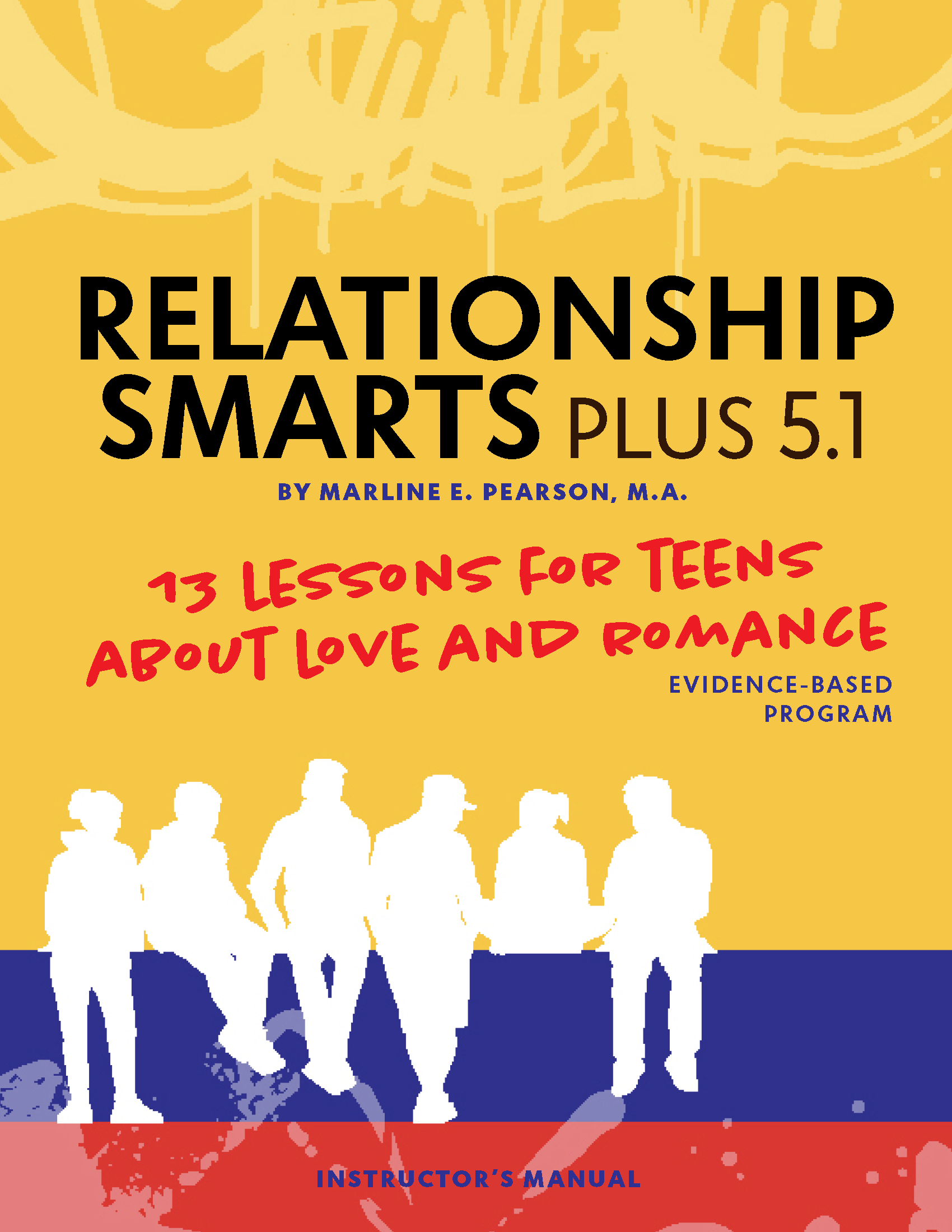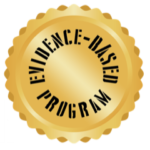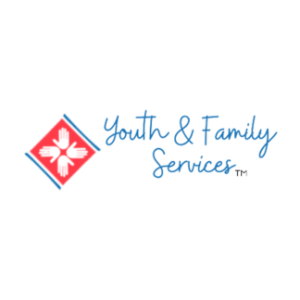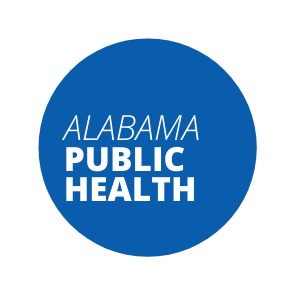
Program Length: 13 Lessons
Age Group: 12-16
Author: Marline E. Pearson, MA
Relationships and Romance for Teens
Relationship Smarts PLUS 5.1 CSE is a 13-lesson evidence-based relationship skills curriculum for young teens (ages 12-16). The curriculum integrates positive youth development, life skills, healthy relationships, dating violence prevention, and pregnancy prevention in a comprehensive healthy relationship skills program. It is designed to help teens learn how to make wise choices about relationships, dating, partners, sex, and more.
Updated in Spring 2025, this version includes the most recent YBRS stats along with existing topics important to today’s youth, such as sex trafficking prevention, technology in relationships, navigating relationships in the digital age, online porn, sexual assault, consent—and their impact on relationships.
Relationship Smarts PLUS 5.1 CSE aligns with all Executive Orders on DEI and gender. TPP grantees serving youth 18 and above may use Relationship Smarts PLUS 5.1 CSE. If you are not using federal funding to implement Relationship Smarts PLUS and do not need an SRA version, we recommend Relationship Smarts PLUS 5.0 Classic.
Note: Training is not required but encouraged to facilitate Relationship Smarts PLUS 5.1 CSE. To be certain, check with your funder. Both in-person and live virtual trainings are offered. Group rates available for six or more people. Call 800-695-7975 or email relationshipskills@dibbleinstitute.org for more information.

Please contact relationshipskills@dibbleinstitute.org if you would like to purchase this program.
Overview
Relationship Smarts PLUS 5.1 CSE helps teens make healthy relationship, dating, and sexual decisions for themselves by focusing on their futures. The curriculum features:
- A realistic, relevant context for learning.
- An appeal to personal aspirations for love, intimacy, and successful relationships.
- New motivations for behavioral change.
- Empowerment through self-awareness, relationship knowledge, and practical skills.
Relevant to today’s young teens!
- Infatuation and attractions
- Love chemicals and how they impact your brain
- Sexual consent
- Online pornography
- Sexual assault
- Drugs and alcohol-and their impact on relationships
- Sex trafficking prevention
- Online sharing, sexting, sextortion, cyberbullying, and digital consent
- Greater depth in discussion of casual sex, “hooking up,” and “hook up culture”
Engaging Content and Teaching Tools
Relationship Smarts PLUS 5.1 CSE is delivered through activities that are informative, fun, and engaging. This curriculum uses popular media and innovative activities to engage young people in learning. An updated journal helps teens apply curriculum concepts to their own lives. Trusted Adult-Teen activities for each lesson stimulate conversations and connections with caring adults.
Relationship Smarts PLUS 5.1 CSE Core Messages:
Key topics include:
- Self-awareness: Personal strengths/weaknesses, past influences, goal setting, friendship, peer pressure, maturity, clarifying values, self-regulation.
- Developing healthy relationships: Attraction, building blocks of positive relationships, how to assess relationships, realistic love, low-risk dating, “deciding vs. sliding.”
- Problems, warnings, and dangerous relationships: Break-ups and broken hearts, unhealthy and abusive behaviors, ways to exit safely, boundaries, dating violence, sexual assault.
- Communication and conflict: Danger signs, time outs, anger regulation, the Speaker-Listener Technique, problem-solving.
- Intimacy and sexual decisions: Pacing relationships, what intimacy means, sex in the context of relationships, boundaries, myths of pregnancy, risky situations, sexual consent, refusal skills, and the benefits of planning for a child, and the future.
- Planning for sexual choices
- Updates to the Success Sequence: how the order of school, commitment, and babies impacts your future.
- Social media: The impact of “constant connection,” sexting realities and risks, online porn, personal polices on using social media.
Relationship Smarts PLUS has completed a five-year evaluation involving over 8,000 teenagers in the state of Alabama. Researchers from Auburn University conducting the study report sustained gains over time. Findings include increases in students’ realistic understanding of relationships and decreases in faulty relationship beliefs, broadened understanding of relationship aggression, and declines in aggression in relationships as compared to those in control groups.
Evaluation Results
- Gregson, K., Adler-Baeder, F., McGill, J., Wei, M., & Wang, Z. (2025). Impact Evaluation of the Alabama Youth Relationship Education Project in Auburn, AL. Office of Planning, Research, and Evaluation; Administration for Children and Families.
- Benham-Clarke, S., Roberts, G., Janssens, A., & Newlove-Delgado, T. (2023). Healthy relationship education programmes for young people: Systematic review of outcomes. Pastoral Care in Education, 41, 266-288
- Chan, A.E., Harcourt-Medina, K.T., & Adler-Baeder, F. (2022). Lessons from the Field. Classroom gender composition in the context of youth relationship education. Family Relations, 71, 1484-1496.
- Alamillo, Julia, and Elizabeth Doran (2022). Healthy Marriage and Relationship Education for High School Students: The Longer-Term Impacts of Relationship Smarts PLUS in Georgia, OPRE Report # 2022-325, Washington, DC: Office of Planning, Research, and Evaluation, Administration for Children and Families, U.S. Department of Health and Human Services
- McElwain, A. and Finnegan, V. (2022). Emerging professionals practicing family science: Reflections of peer educators delivering relationship education. Family Relations.
- UGA 2017-2018 Relationship Smarts Plus Impact Report Futris, T., Molter, M., Rylee, L., & Farner, K. (2018).
- Understanding Change in Violence-Related Attitudes for Adolescents in Relationship Education. Savasuk-Luxton, R., Adler-Baeder, F., & Haselschwerdt, M. L. (2018). Journal of Adolescence, 63, 153-164.
- A Methodological Review and Critique of the “Intergenerational Transmission of Violence”. Haselschwerdt, M. L., Savasuk-Luxton, R., & Hlavaty, K. (2017). Trauma, Violence, & Abuse,152483801769238.
- Youth Relationship Education: A Meta-Analysis. McElwain, A., McGill, J., Savasuk-Luxton, R. (2017). Children and Youth Services Review, 82, 499–507.
- Factors Associated with Romantic Relationship Self-Efficacy Following Youth-Focused Relationship Education. Family Relations. Futris, T. G., Sutton, T. E. and Duncan, J. C. (2017). Family Relations, 66(5), 777-793.
- Findings for Youth Participants in Relationship Education. Adler-Baeder, F., Savasuk-Luxton, R., Ketring, S., Smith, T., & Kerpelman, J. L. (2015). Alabama Healthy Marriage and Relationship Education Initiative.
- Relationship Education and Classroom Climate Impact on Adolescents’ Standards for Partners/Relationships. Ma, Y., Pittman, J. F., Kerpelman, J. L., Adler-Baeder, F. (2014). Family Relations, 63, 453-468.
- A Cross-lagged Model of Adolescent Dating Aggression Attitudes and Behavior: Relationship Education Makes a Difference. Pittman, J. F., & Kerpelman, J. L. (2013) Published Proceeding,
Hawaii International Social Science Conference, Waikiki, HI. - An Evaluation of the Relationship Smarts Plus Program on Adolescents in Georgia. Futris, T. G., Sutton, T. E., and Richardson, E. W. (2013). Journal of Human Sciences and Extension, 1(2).
- Merging Relationship Education and Child Abuse Prevention Knowledge: An Evaluation of Effectiveness with Adolescents Schramm, D. G. & Gomez-Scott, J. (2012) Marriage & Family Review, 48:8, 792-808.
- Healthy Relationship Education for Dating Violence Prevention Among High-Risk Youth. Antle, B. F., Sullivan, D. J., Dryden, A., Karam, E. A., Barbee, A. P. (2011). Children and Youth Services Review, 33(1), 173-179.
- What Adolescents Bring to and Learn from Relationship Education Classes: Does Social Address Matter? Kerpelman, J. L., et al., (2010). Journal of Couple & Relationship Therapy, 9:2, 95-112
- Evaluation of a Statewide Youth-Focused Relationships Education Curriculum Kerpelman, J.L., et al., (2009). Journal of Adolescence.
- Relationship Smarts: Assessment of an Adolescent Relationship Education Program. Trella, D. (2009). National Center for Family & Marriage Research, WP-09-12.
- Identity as a Moderator of Intervention Related Change Identity Style and Adolescents’ Responses to Relationships Education. Kerpelman, J. L., Pittman, J. F., & Adler-Baeder, F. (2008). Identity: An International Journal of Theory and Research, 8:2, 151-171.
- The Impact of Relationship Education on Adolescents of Diverse Backgrounds Adler-Baeder, F., Kerpelman, J. L., Schramm, D. G., Higginbotham, B., Paulk, A. (2007). Family Relations, 56, 291–303
- Youth Focused Relationship and Marriage Education Kerpelman, J.L. (2007). The Forum for Family and Consumer Issues, 15405273.
- Looking Towards a Healthy Marriage: School-Based Relationships Education Targeting Youth. Alder-Baeder, F. (2005) College of Human Sciences, Auburn University.
Introduction to Relationship Smarts PLUS…………….. iii
Instructor Tips…………………………………………………vi
Lesson 1: Who Am I and Where Am I Going?…….1
- Possible Selves Tree
- My Friends and My Future
- Being Yourself: Dealing with Pressure Situations
Lesson 2: Maturity and What I Value………………..19
- Four Dimensions of Maturity
- Maturity—Where Are You?
- Clarifying Values
- What’s Important to Me?
Lesson 3: Attractions and Infatuation……………….35
- Test Your Love Smarts
- Relationship Pyramid
- The Chemistry of Attraction
Lesson 4: Principles of Smart Relationships…….55
- Smart or Not-So-Smart?
- Seven Principles of Smart Relationships
- Seven Questions to Ask
- Three Sides of Love
Lesson 5: Is It a Healthy Relationship?……………..73
- How Can You Tell?
- Unmet Needs and Unhealthy Relationships
- Having Fun
- Tips for Teens
Lesson 6: Breaking Up and Dating Violence…….89
- Breaking Up
- Early Warnings and Red Flags
- Violence: Why it Happens, What Helps, Signs of Danger
- Sexual Assault
- Draw the Line of Respect
- Sex Trafficking—Prevention
Lesson 7: Decide, Don’t Slide! Pathways to Success…………………………………………………………121
- Sliding vs. Deciding and Personal Development
- Sliding vs. Deciding and Relationships
- A Low-Risk Deciding Approach
- Making Decisions
- Pathways and Sequences Towards Success
Lesson 8: Communication and Healthy Relationships……………………………………………….151
- Communication Patterns Learned in Family
- Patterns that Harm Relationships
- Angry Brains and the Power of Time Outs
- The Speaker Listener Technique—When Talking is Difficult
Lesson 9: Communication Challenges and More Skills………………………………………………….175
- Complain and Raise Issues Effectively
- Hidden Issues Under Arguments
- A Problem-Solving Model
- Taking Care of Relationships
- A Brief Review
Lesson 10: Sexual Decision-Making………………..195
- Let’s Talk About Sex
- What is Intimacy, Actually?
- Am I Ready?
- Risks of Sliding—Benefits of Deciding
- Set Your Personal Line & Getting On the Same Page
Lesson 11: Pregnancy, STIs and HIV……………….227
- Test Your Sex Smarts
- STIs and HIV Are for Real
- Alcohol and Drugs—Increasing the Risks
- My Personal Plan
- Pressure Situations, Refusal Skills, & Exit Strategies
Lesson 12: Unintended Pregnancy Through the Eyes of a Child………………………………………257
- Child Looking for a Family
- What about Fathers?
- Child Speak—Brighter Futures
Lesson 13: Teens, Technology, and Social Media…289
- Constantly Connected—For Better and Worse
- Relationships in the Digital World
- Pornography—Informed Decision-Making
- Cyberbullying
- Designing a Personal Policy
- Planning for Success
Appendix: Review and Assessment……………………333
About the Author…………………………………………….355
Acknowledgements……………………………………………..356
Colored Activity Cards
Relationship Smarts PLUS is a lively, 13-lesson, evidence-based relationship skills curriculum for young teens. This curriculum embodies an innovative approach that addresses positive youth development, life skills, healthy relationships, dating violence, and pregnancy prevention. These goals, typically addressed in separate programs, are integrated and embedded into one comprehensive healthy relationship skills program.
Relationship Smarts PLUS builds assets and strengthens protective factors. It appeals to teenagers’ aspirations, rather than merely emphasizing what they must avoid. It empowers youth with skills needed to form and maintain healthy relationships, make wise sexual choices, and work toward their goals.
All youth have attractions, emotions, and desires for healthy relationships. All youth benefit from sexual delay and risk avoidance. All youth need skills and knowledge to navigate their relationships and make wise sexual decisions.
Building Models and Confidence for Healthy Relationships
Many young people today lack models of healthy relationships. A recent Child Trends survey of disadvantaged youth reported that while respondents could list general qualities for healthy relationships, and certainly aspired to have them, when asked if they actually saw many around them, the answer was “no.”* Sadly, they had little confidence they would be able to achieve a healthy relationship because they didn’t know how—they didn’t have the skills.
Relationship Smarts PLUS aims to build confidence and skills. It offers guidance on navigating the world of romantic relationships. Teens learn that healthy relationships begin with the individual—identifying personal strengths and weaknesses, understanding how one’s past influences the present, and the importance of attending to one’s own growth and development.
This curriculum offers knowledge of what a healthy relationship is and isn’t, as well as insights and skills for handling the early chemistry of attraction and choosing partners wisely. Teens learn the building blocks of healthy relationships and are encouraged to identify relationship qualities they find personally important. They are provided principles to guide them in early relationship development. Frameworks to assess relationships are employed to help teens in relationship decision-making. They are provided a low-risk strategy Decide, Don’t Slide! model to guide them in reducing the potential for high-cost consequences of risky behaviors and attachment to problem people.
Relationship Smarts PLUS builds teens’ awareness of the red flags of unhealthy and abusive relationships and ways to exit those relationships safely. Teens are encouraged to set boundaries and practice drawing the line of respect at the first sign of disrespect in a relationship. Teens learn how to handle breakups and move forward.
Improving Communication Skills
This program includes a powerful set of evidence-based skills to improve communication, assertiveness, negotiation, and the handling of conflict. These skills are adapted from PREP, the Prevention and Relationship Enhancement Program.** Youth practice new ways to handle anger and regulate strong emotions.
They learn a technique for how to talk through difficult or sensitive issues. They learn how to more effectively raise issues and complaints, recognize hidden issues, and solve problems within their relationships. The communication skills are central to self-regulation.
New Tools for Dating Violence Prevention
Building robust knowledge and skills for healthy relationships provides a positive and proactive way to prevent dating violence. It is difficult to steer clear, or exit, a destructive relationship if all you see are unhealthy relationships and you have no clue how to build a healthy relationship. The vision-building, skills, guides, and decision-making frameworks in Relationship Smarts PLUS help raise young people’s confidence that they can develop healthy relationships.
A Heart and Health Based Approach to Pregnancy/STI Prevention
Relationship Smarts PLUS contains a missing piece in sexual decision-making and pregnancy prevention by addressing relationship issues. For example, can teenagers make wise sexual choices if they:
- Have never clarified what’s important to them?
- See few models of healthy relationships around them? Know little about how to distinguish between healthy and unhealthy relationships?
- Lack insight and skills for building healthy relationships? Lack communication and negotiation skills needed for relationships?
- Have not been engaged in thinking about sexual meaning and encouraged to define a context and timing for sex that is meaningful?
Youth are rarely asked to think about sex beyond the usual health paradigm of reproduction, disease, and risk avoidance. A fundamental assumption of this curriculum is that sexual choices and behaviors cannot be treated in a vacuum outside of relationships and emotions. Sex isn’t just about bodies. It’s about the heart, too.
Relationship Smarts PLUS takes a heart- and health-based approach and provides unique ways to tap new sources of motivation to make safer and wiser choices. Sexual decision-making is embedded within an exploration of intimacy and linked to the development of healthy relationships. Young people have aspirations for connection, affection, respect, and love that this program speaks to. Through highly engaging activities, youth are guided to cultivate their own North Star.
This curriculum encourages teens to develop goals, boundaries, and a context and pace for sexual intimacy that is responsible, protective of their own aspirations in life, and personally meaningful. Films, music, poetry, and stories are used to inspire and help young people identify their values and develop personal plans. Teens also engage in role-plays on negotiation and refusal skills.
To clarify myths and facts regarding pregnancy, STIs, risks, and protection, medically accurate information is woven into the activities.
A New Message on Pregnancy Prevention
Many pregnancy prevention messages focus on a young person’s self-interest, as in how a pregnancy would negatively affect him or her. Relationship Smarts PLUS takes a different approach. It encourages young people to step outside themselves and look more deeply at the consequences for children of unplanned pregnancy.
By placing the child at center stage, participants see through the eyes of the child the consequences of sliding into an unplanned pregnancy and the “relationship turbulence” that often accompanies it. Examining how an unplanned pregnancy can affect a child may tap a powerful and positive source of motivation to more consciously plan to prevent a first or subsequent pregnancy.
An Activity and Media-Based Approach
This curriculum is delivered entirely through activities that are informative, fun, upbeat, and meant to affirm teen relationship experiences. Relationship Smarts PLUS is packed with lively activities that use scenarios written by youth. It incorporates popular music, music videos, film, stories, poetry, drawing, sculpting, and an engaging, interactive workbook that helps teens apply curriculum concepts to their own lives. Relationship Smarts PLUS appeals equally to males and females.
Parent-Teen Connection activities for each lesson are designed to convey core material to parents or a trusted adult and serve as a catalyst for parent-teen conversations on these very important issues. Parent-teen connectedness has been found to be the strongest protective factor against risky behaviors.*** These connection activities provide a way to partner with parents or trusted adults and mentors in helping teens navigate the choppy waters of adolescence.
Here are just a few examples of the many successful settings that have implemented Relationship Smarts PLUS.
Family and Consumer Sciences
Health
PREP
Sex Education
California Healthy Youth
Collaborative for academic, social and emotional learning (casel)
What Others Have to Say
“Taking this class this year has helped me a lot when making mature healthy decisions. I was in a very controlling and not trusting relationship. I had no freedom in this relationship; he didn’t want me talking, texting or hugging other guys. The first time I experienced or got to see his “real side” was when one of my guy friends hugged me in the hallway. The first thing I saw was his eyes; they turned from happy to an angry glare.
The second thing I saw was when he clenched his teeth and his fists. I want up to my boyfriend, hugged him and gave him a kiss on the cheek. I asked him what was wrong. “You are only mine!” he said “I don’t want you hugging anyone!” I just laughed and told him to calm down and that we would talk about it later after class. I walked in to my class and one of my guy friends said to me “Is your overprotective boyfriend gone?” I looked at him confused thinking he may have heard the conversation me and my boyfriend had.
Later in that class my guy friend explained to me that my boyfriend had told him not to talk or hug me anymore or he would have problems with him. I was more than upset because over the next three weeks he did not change like he told me he was. He kept telling guys not to hug me, or even smile at me.
This is where this curriculum helped me not explode in rage at him. I had already determined it was not a healthy relationship even though I thought or wanted it to be. I used the break up tips since I was so nervous to break up with him. It was a very hard decision but I don’t regret it at all. I know this curriculum helped me to see how unhealthy our relationship was even when I didn’t want to see it.”
Female Student. Hurst, TX
“Taking this class has shown me how to be a better person and really helped me grow. The course that impacted my life the most drastically were the relationships unit. While in class we learned about communication skills and watched several videos on how to handle different life situations and problems. Dating was a key topic. I learned that many people get taken advantage of in relationships and may stay with that person in fear of abuse or they may not even know the relationship is bad.
My freshmen year of high school I had been in a relationship where the guy was overly dramatic and anything I did was wrong. He pushed the thought of sex and physical behavior on me so much I had a breakdown and just cried. He honestly used the famous, “if you loved me you’d have sex with me.” Line. Luckily, I was wise enough to stand up for myself and say no.
This class has taught me what to look for in a guy and respect myself and my needs. I have recently found a great guy my junior year and I am really happy with him. It has opened my eyes. My boyfriend even took the class the year before so it’s nice to know he understands and went through it too. This whole semester has been an overall great and inspiring adventure and I will take all of it to heart. I will be more sympathetic, caring, and thoughtful and help friends and family whenever I can.”
Female Student
Boise, ID
“Love U2: Relationship Smarts PLUS gives teens the knowledge and skills for healthy relationships now and in the future!” Fun and interactive: teens love it!”
Shannon R. KellyChildren’s Aid Society
Family Support Services Manager
Clearfield, PA
“In a society filled with media images that hurry kids toward intimacy, and examples everywhere of relationships gone awry, Marline Pearson fills a huge gap in our children’s education — how to think about and establish meaningful, respectful relationships in a highly sexual society. Caring educators everywhere will want to share Pearson’s astute and thoughtful messages with their youth to help them develop relationship smarts that will last a lifetime. What a quality gift to our children!”
Lynda S. Madison, Ph.D., Licensed Psychologist
Director, Family Support & Psychological Services
Children’s Hospital, Omaha
Associate Professor in Pediatrics and Psychiatry
Creighton University Medical School
Author of: The Feelings Book: The Care and Keeping of Your Emotions (Pleasant Company, 2002); Keep Talking: A Mother-Daughter Guide to the Preteen Years (Andrews McMeel, 1999); co-author of What I Wish You Knew: Letters from our Daughters’ Lives and Expert Advice on Staying Connected (Pleasant Company, 2001); and Parenting with Purpose: Progressive Discipline from Birth to Four (Andrews McMeel, 1998).
“This curriculum is a welcome addition that begins to fill a real gap. It talks not just about what’s safe but also what’s right; it discusses relationships, values, and long term plans, not just avoiding specific problems. And, it artfully transcends the tiresome ‘abstinence versus contraception’ debate.”
Sarah Brown, Director
National Campaign to Prevent Teen Pregnancy
“THANK YOU for embracing Love U2®. As a physician of 20 years, I have seen dramatic changes in the rise of sexually transmitted diseases, depression and hurt in our teens associated with sexual activity. Your teens need this program and they need you to help them make it work in their lives. No other program that I have seen challenges teens to confront their feelings, their decisions and their behaviors as thoroughly as Love U2®.”
Meg Meeker, M.D.
Author, “Epidemic: How Teen Sex Is Killing Our Kids”
and “Restoring the Teenage Soul”
“. . . a new and exciting frontier in sex education has been embodied in efforts such as the Love U2® curriculum. These efforts tend to teach young people about healthy relationships at the same time they teach them about avoiding risky sexual behavior and the value of waiting. In short, these efforts are focused squarely on trying to help young people understand how to achieve responsible and respectful relationships.”
Isabel Sawhill
Senior Fellow
The Brookings Institution
Before the Ways and Means Committee
Income Security and Family Support Subcommittee
United States House of Representatives
“Solutions to Poverty”
April 26, 2007
“Marline Pearson’s Love U2 series is brilliantly designed to address the deepest desires of teen hearts, while helping them grow their minds in ways that they can more successfully navigate the challenges of their lives….Her approach is wise and compassionate in a way that avoids the kinds of divisions among liberals and conservatives that sometimes paralyze attempts to help teens…Pearson has selected the most essential aspects of our approach (PREP®) and modified them to be usable and relevant for teens….the strategies here address the most basic needs we have in relationships: the need to talk without fighting, the need to speak and be understood, the need to hear what is in the heart of another, and the need to handle conflicts without damaging relationships…”
Scott M Stanley, Ph.D.
University of Denver
PREP Educational Products, Inc.
Click here to download the Relationship Smarts PLUS 5.1 CSE Logic Model
Training is not required but encouraged to facilitate Relationship Smarts PLUS 5.1 CSE.
To be certain, check with your funder. Both in-person and live virtual trainings are offered. Group rates available for six or more people.
Call 800-695-7975 or email relationshipskills@dibbleinstitute.org for more information.






